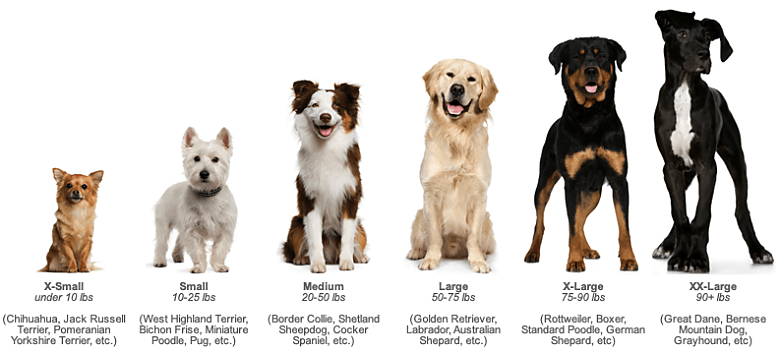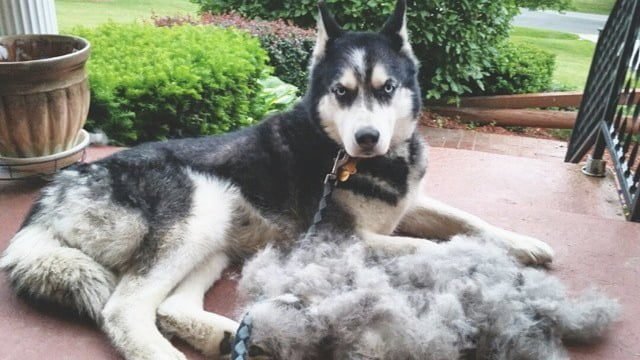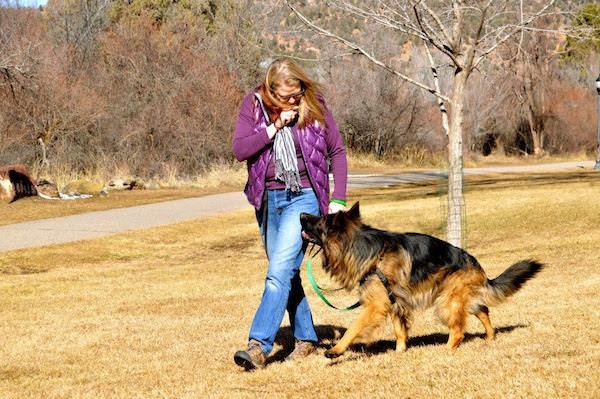A dog is more than just a pet—it’s a lifelong friend, a companion, and often a member of the family. With countless breeds to consider, finding the best dog breed for your family means matching your lifestyle, home, and energy levels to a dog’s personality and needs. Here’s a complete breakdown of what matters when choosing the right breed.
🏡 Matching a Dog to Your Family Lifestyle
When choosing the best dog breed for your family, start by evaluating your current lifestyle and daily routine. Think about your family structure—do you have small children, teenagers, or plan to grow your family soon? These details matter more than you might expect.
If you have kids or anticipate regular visits from young relatives, it’s important to select a breed that’s known for being friendly, tolerant, and patient around children. Labrador Retrievers, for instance, are among the most beloved family dogs for a reason. Their playful nature, loyalty, and love for human interaction make them excellent companions for households with children.
However, Labradors also require plenty of attention and don’t do well when left alone for extended periods. They’re prone to separation anxiety, which can lead to unwanted behaviors like chewing, digging, or barking. So, if your home is often empty during the day due to work or school schedules, a Labrador may not be the best fit.
In such cases, you might want to consider lower-maintenance breeds that are more independent and content spending time alone. Understanding your daily rhythm and how much time your dog will spend with family members is essential in selecting a breed that will thrive—not just survive—in your home.
Choosing the right breed isn’t only about cuteness or trend—it’s about compatibility with your family’s everyday life.
Read full: Top 10 Best Dog Toys for Labradors Reviews
🎯 Defining Your Dog’s Role in the Family
When searching for the best dog breed for your family, it’s essential to clarify what kind of role you expect your new furry companion to play in your household. Every breed brings its own set of characteristics, temperaments, and instincts—some are natural guardians, while others are content as cuddle-loving companions.
For example, if you’re looking for a devoted lap dog that’s all about affection, the Cavalier King Charles Spaniel might be a perfect match. Known for their gentle demeanor and strong emotional connection with their owners, they’re ideal for companionship—but not the best if you’re hoping for a watchdog. In fact, they’re more likely to greet an intruder with a wagging tail than an alarmed bark.
On the flip side, if home security is a concern, breeds like German Shepherds, Dobermans, or Boxers offer a protective instinct and are naturally alert. They’re better suited for families seeking both companionship and a built-in home alarm.
Consider your activity levels as well. Do you want a hiking partner, a jogging buddy, or a calm dog who’s happy to chill on the couch? Border Collies and Labradors thrive with stimulation and exercise, while Bulldogs or Basset Hounds are more laid-back.
Ultimately, identifying your dog’s intended role—whether it’s a loyal protector, a playful sidekick, or a calm indoor companion—will lead you to the best dog breed for your family lifestyle and expectations.
Read more: Top 10 Best Puppy Training Treats Reviews
Evaluate Your Daily Schedule Before Choosing a Dog
When considering the best dog breed for your family, time commitment should be at the top of your checklist. Dogs vary in their energy levels, attention needs, and care requirements.
Why Time Matters in Dog Ownership
Dogs aren’t just pets—they’re companions that need love, attention, and daily interaction. Some breeds, like Retrievers and Shepherds, thrive on constant stimulation and exercise, while others, such as Bulldogs or Shih Tzus, are more relaxed and require less active time.
Busy Schedule? Choose the Right Breed
If your household is full of activity, long work hours, or travel, you’ll want a dog that handles alone time well. Consider breeds like:
- Greyhounds – Independent and low-energy
- Basset Hounds – Easygoing and calm
- Chihuahuas – Small but generally low-maintenance
Avoid high-energy breeds like Border Collies or Huskies unless you have a very active lifestyle and plenty of time.
Time Requirements Beyond Walks
Grooming, Feeding & Socializing
A dog’s needs don’t stop at a daily walk. Think about:
- Feeding routines – Usually 2–3 times a day
- Training sessions – Especially critical for puppies
- Potty breaks – More frequent in younger dogs
- Grooming – Brushing, baths, nail clipping, etc.
- Socialization – Trips to the park, meeting other dogs, and more
Each of these elements adds to your daily time commitment.
(a) Top 6 Best Small Dog Grooming Table Reviews
Puppy vs. Adult Dog Time Needs
Puppies need significantly more supervision and care. This includes:
- House training
- Teething and chewing management
- Socialization with people and other animals
- Frequent vet visits and vaccinations
If you’re short on time, consider adopting a trained adult dog instead of a puppy.
(b) PetSafe Multi-Tier Pet Fountain Review
Questions to Ask Before Choosing a Dog
Assessing Your Availability
Be honest about your schedule and ask:
- Can I give my dog at least 1–2 hours of attention daily?
- Will someone be home during the day to provide care?
- Am I willing to modify my routine for my dog’s needs?
Conclusion: Match Your Time With the Right Breed
Choosing a dog whose needs align with your available time ensures a smoother adjustment, better behavior, and a deeper bond. Investing the time to evaluate this factor now will save you stress and ensure a happy, healthy pet.
(c) Crate Training Your Puppy Separation Anxiety
Additional Factors to Consider When Choosing the Best Dog Breed for Your Family
When looking for the best dog breed for your family, the decision goes far beyond size, temperament, or grooming needs. There are several other lifestyle-related factors that could significantly impact how well a dog integrates into your home. Here’s what you need to think about:
🏠 Your Dog and the Home Environment
Dogs thrive in spaces where they feel secure and stimulated. Whether you’re in an apartment or a large house, your environment should suit the breed’s energy level and space needs. For example, a Border Collie may struggle in a cramped apartment, while a French Bulldog could thrive.
- Training begins at home: As soon as your puppy arrives, basic training should start. A well-trained dog is a happier dog and a more enjoyable companion.
- Adapt your space: Ensure there’s a designated area for rest, food, and play, suited to the breed’s needs.
💪 Exercise Requirements Vary by Breed
All dogs need regular exercise, but the type and intensity can differ vastly depending on breed and size.
- Active breeds like Huskies, Labradors, or Vizslas need plenty of space and long walks or runs.
- Low-energy breeds like Pugs or Bulldogs are satisfied with shorter walks and indoor play.
- Health and weight control: Regular exercise helps prevent obesity in both you and your dog—plus, it strengthens your bond.
Related Articles: Top 10 Best Dog Treadmills for Exercise Reviews
🎓 Discipline and Early Training Matter
Early discipline is essential for a well-behaved pet. Introduce your dog to a collar and lead early on.
- Leash manners: Always leash your dog in public places and near livestock or wildlife.
- House-training: Teach your dog to use designated areas, and clean up responsibly to be a respectful owner.
🐶 Companionship and Social Needs
Some dogs thrive on human attention, while others are more independent. If you’re away often:
- Consider a second dog for companionship.
- Choose breeds known for independence if you can’t be home much, such as Greyhounds or Shiba Inus.
🚫 Preventing Problem Behaviors
Dogs bark, dig, and chase. It’s in their nature—but training helps control it.
- Teach your dog to fetch a ball instead of chasing cars or cyclists.
- With the right leadership and structure, even high-energy dogs can adapt to calm home life.
📜 Legal Considerations for Dog Owners
Dog ownership comes with legal responsibilities.
- ID tags: Your dog must wear a collar with your name and address in public.
- Liability: If your dog causes damage or injury, you’re legally and financially responsible.
- Insurance: Consider pet insurance that covers accidents and third-party liability.
✈️ Planning for Holidays
Dogs need care even when you’re on vacation.
- Use licensed kennels with up-to-date vaccination checks.
- Never leave dogs unattended at home—it’s both unsafe and illegal under the Abandonment of Animals Act.
Visit article: Top 10 Best Dog Waste Station Reviews
❤️ Final Thoughts on Choosing the Right Breed
Choosing the best dog breed for your family isn’t just about cuteness. It’s about understanding your lifestyle and how well it matches your chosen breed’s needs.
- Think long-term: puppies grow, and responsibilities increase.
- Be honest about the time, space, and energy you can commit.
- Avoid impulsive decisions based on looks alone—puppy eyes can be deceiving!
Make your choice wisely, and you’ll be rewarded with unconditional love, loyalty, and joy from your four-legged friend. Your future pet deserves a forever home that’s ready and right for them.











